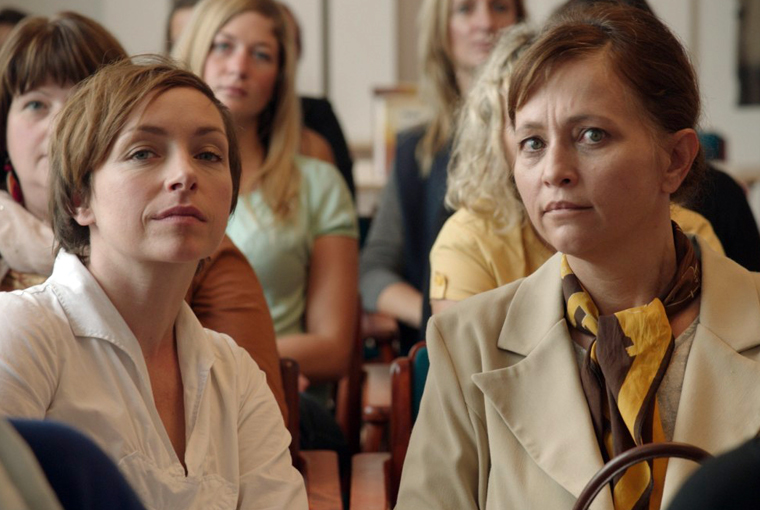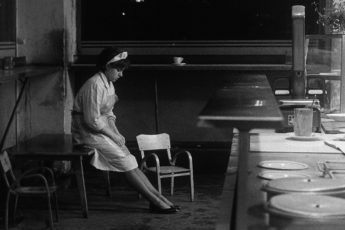The Head and the Heart
Slávek Horák’s Home Care (Domácí péče, 2015)
Vol. 55 (July 2015) by Colette de Castro
A competition film at the Karlovy Vary International Film Festival, Home Care is a debut feature from young director Slávek Horák. Vlasta (played beautifully by Alena Mihulová) is a dedicated home care nurse who treks around the Moravian countryside come rain or come shine to tend to her grumbling patients’ erratic needs. Her husband (Bolek Polivka) is a rugged hillbilly-type who doesn’t express his feelings much, and their daughter only visits them rarely. Vlasta and her husband have a seemingly commonplace life, despite sporadic references to alcoholism and their slightly eccentric ways of expounding on their daughter’s sex life. Yet all this is suddenly shaken when Vlasta is diagnosed with advanced cancer and is given around six months to live.
Vlasta turns to the daughter of an elderly patient who is interested in self-healing and alternative medicine. Grappling for a way out of her sickness, Vlasta latches onto both her daughter and the guru in what becomes a surprisingly lighthearted rendition of a terminal illness story. The guru tells Vlasta, this wearied nurse, about her soul, and encourages her to nourish it as much as she can. This emphasis on the soul creates a duality between Vlasta’s two selves, the one who longs to be appreciated for her hard work as a nurse, and the dutiful wife and mother who represses her true self. Thus her husband comes to represent her body and the harsh reality of the body’s demise. Although their alcoholism is played down in the film, we learn that it is ultimately the cause of her cancer. In an amusing exchange when the doctor at the hospital asks her if she drinks alcohol, she simply replies “No, I prefer wine”.
Although this paradigm between body and soul may sound quite simplistic, its realization is rather majestic: in the lead-up to her death Vlasta explores her spiritual side with small rebellions like wearing bright colors and trying to seduce her husband. The women in her life come to represent her spirit – her daughter, who embodies a kind of spiritual continuation of Vlasta, becomes pregnant during the film.
The cinematography is often radiant. In one great scene, three women walk to the top of a hill in the twilight, their bodies outlined against the setting sun. They come across a rotting tree and Vlasta, left alone with the tree, wraps its black branches in white bandages and sets it aflame, thus yielding a metaphor for her husband and patients. Those who have been rooting for this feminist side of Vlasta to come through are perhaps ultimately disappointed, because what Horák offers us is flawed feminism. But this film is about acceptance and the audience must also embrace that. With all its small rebellions, in the end this film is more about one woman’s personal journey than about flawless womanhood.




Leave a Comment